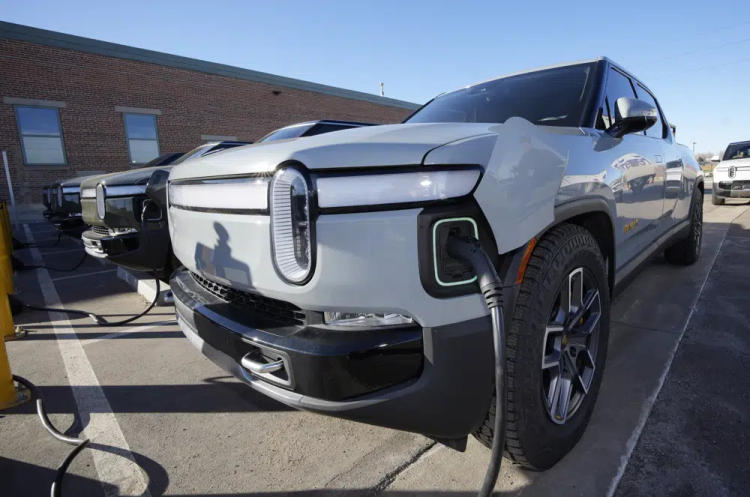Rivian, an electric vehicle manufacturer, has announced its plans to join Tesla’s charging network in the coming year, following the footsteps of General Motors and Ford. Rivian aims to adopt Tesla’s charging connector, aligning with the industry trend towards establishing it as the standard.
Initially, existing Rivian vehicles will require an adapter to connect with Tesla chargers. However, starting from 2025, Rivian vehicles will come equipped with a standard Tesla charging port, eliminating the need for adapters.
This decision by Rivian adds to the growing momentum within the automotive industry towards adopting Tesla’s connector, known as the North American Charging Standard. Currently, most automakers, except Tesla, utilize the CCS connector developed in collaboration with the Society of Automotive Engineers.
Tesla’s Superchargers have gained considerable interest from other automakers due to their extensive network of direct current fast-charging plugs across the United States. Furthermore, Tesla’s charging stations are strategically located along major freeway travel routes.
Other automakers are also considering the switch to Tesla’s charging network. Carlos Tavares, the CEO of Stellantis (formerly Fiat Chrysler), revealed on Monday that their U.S. teams are actively studying the potential change and are expected to make a decision within a few weeks.
In an interview with The Associated Press, Tavares stated that they are currently evaluating the advantages and disadvantages of joining Tesla’s charging network. The potential benefits are being carefully assessed, while one of the concerns raised is the potential reliance on Tesla.
At present, Stellantis does not have any fully electric vehicles available for sale in the U.S., but they do offer three plug-in gas-electric hybrids capable of short distances on battery power. However, the company has plans to introduce an electric commercial van later this year, followed by an electric Ram pickup and other electric vehicles in the future.
Although Rivian is a smaller player in the U.S. automotive market, having sold just under 30,000 vehicles from 2021 through the first quarter of this year, it is considered a significant competitor to Tesla. Similarly to General Motors and Ford, Rivian owners will gain access to over 12,000 Tesla Supercharger plugs.
Tesla currently operates 1,797 Supercharger stations in the U.S., with more than 19,000 available plugs, as reported by the Department of Energy. These Supercharger stations utilize direct current fast-charging technology, enabling electric vehicles to be charged relatively quickly while on the move. This feature makes them highly desirable for people traveling longer distances and in need of efficient charging solutions.
While ChargePoint currently boasts the largest charging network in the U.S. with over 32,000 stations and 55,000 plugs, it should be noted that most of these are Level 2 chargers, which typically take up to eight hours to fully charge a battery.
According to the Energy Department, there are approximately 54,000 public charging stations across the country, offering more than 136,000 plugs. Although the majority of these stations are Level 2 chargers, the network of DC fast chargers is steadily expanding.
Despite the existing charging infrastructure, industry analysts suggest that there is a growing momentum towards adopting Tesla’s connector as the standard in the U.S. However, during the transition phase, vehicles will likely need to be compatible with both Tesla’s connector and other existing connectors.
General Motors and Ford have stated that they do not pay Tesla for access to the network, but vehicle owners will still have to pay Tesla for charging services, similar to any other charging system.
Rivian has expressed its intention to join Tesla’s network while simultaneously expanding its own charging system, incorporating Tesla’s connector. The news of Rivian joining the network, along with GM and Ford, has had a positive impact on Tesla’s stock, with shares closing up 5.3% on Tuesday. Since Ford’s initial announcement on May 25, Tesla’s shares have increased by approximately 40%.









